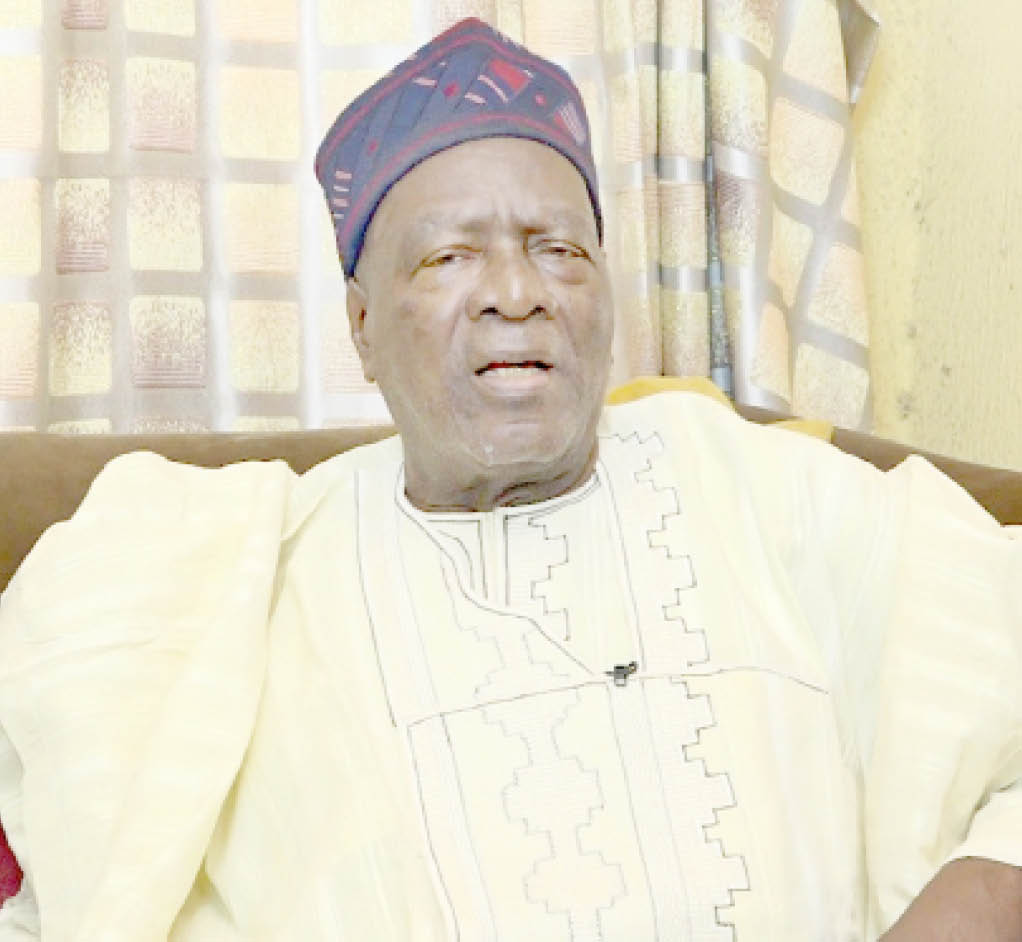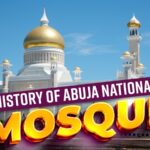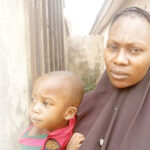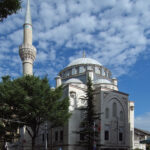Professor Tajudeen Badamosi is a professor of History, who has spent most of his working life at the University of Lagos. He was head of the Department of History and Dean of the Faculty of Arts among other responsibilities in the university. Outside the campus, he is a well-known writer of many books and also a leader in the Islamic community. Indeed, he is still the president of the Muslim community of Lagos.
About my early life
Thank you very much. I am delighted to be on this programme. I have heard much about it and it is a pleasure and honour for me to feature on it.
About my early life, I was born in 1939, that is about 84 years ago, in a very famous city, Ondo, in Ondo State. I was happy I was born there. It is a community that cherishes values, family values, social values and ethical values and I love the city of Ondo.
What is famous about it?
What is famous about Ondo? Ondo is a very big city and one of the most ancient cities in the South West. It has a long tradition of monarchs dating back to the 15th century; and here is a city that treasures its history, its traditions and values and I am happy to have grown up in that environment because that was my first introduction as it were to history, African history.
I had my primary school, and part of my secondary school at one of the oldest secondary schools in that city, it is called Ondo Boys High School, It was founded the year I was born and I attended that school and I was a prefect throughout my career there, finally becoming the head boy, and senior prefect in my final year.
Inside 6 senatorial zones yet to produce governors since 1999
Fintiri orders probe into torture, death of 17-year-old
On leaving Ondo Boys High School, I went to Kings College for my higher school certificate in Lagos and I am delighted to have had the wonderful opportunity of attending that college of distinction.
So, I am proud that I attended Ondo Boys High School and I am even more proud that I attended Kings College Lagos and from Kings College Lagos, I was admitted to the University College of Ibadan as it was then known to read history, needless to say that was the only tertiary institution we had at that time in Nigeria and we had a fantastic time there.
What attracted you to the study of History? In those days that many young people wanted to do professional courses, why History?
Why History? I found that I had a flair for it; a natural flair for it and that was probably, I don’t know whether to say it, it is in my genes because my parents were noted for their knowledge of their community and of their environment.
My mother was a fantastic historian. She knew the history of everybody in that area and she also knew the history of wherever she was, so it was natural for me since I was very close to my parents to pick that up from her.
Was she a teacher?
No, she was just a trader but then she was often in relationship with very many people and as I have said, she treasures people, she knows their backgrounds, she knows their history and she relates beautifully well with them. And that predisposed me to studying people and my environment and be able to relate to it.
Mark you, as you said, many of my friends wanted to go for medicine, they wanted to go for law, etcetera. In fact, I was thinking why shouldn’t I go to law?
You thought of Law?
I thought of law, but then my teachers were already saying if you want to go for Law, you have to go abroad because there were no provisions for legal studies at Ibadan at that time.
Was there a challenge for you to get funding to go abroad?
It was a challenge to go abroad and I discovered that really without much effort I would score high marks and high grades in history. So I said well isn’t this a clear indication that my talent is along this side and that I should try and develop it? That is how I entered the school of history and I was happy that I did.
When you finished your first degree, a lot of people in your generation who studied at the university would quickly get top jobs in the civil service. Why didn’t you go that way?
I am not the type. I have to think outside the box and I don’t want to be too confined by rules and regulations that I cannot understand, so I felt that if I were to do my Master’s and my PhD, then I would be in the world of learning and I would be able to pursue knowledge as far as I wanted. I would be able to say what I wanted to say. I would be able to keep to the results of my research. I would be able to maintain my independence and I would not be too much fettered by various regulations.
So I found it more attractive for me to remain in academics; to remain in the realm of knowledge where I can do my research, follow the results of my research and publish my research. I found that much more enticing than being a pen pusher in the civil service.
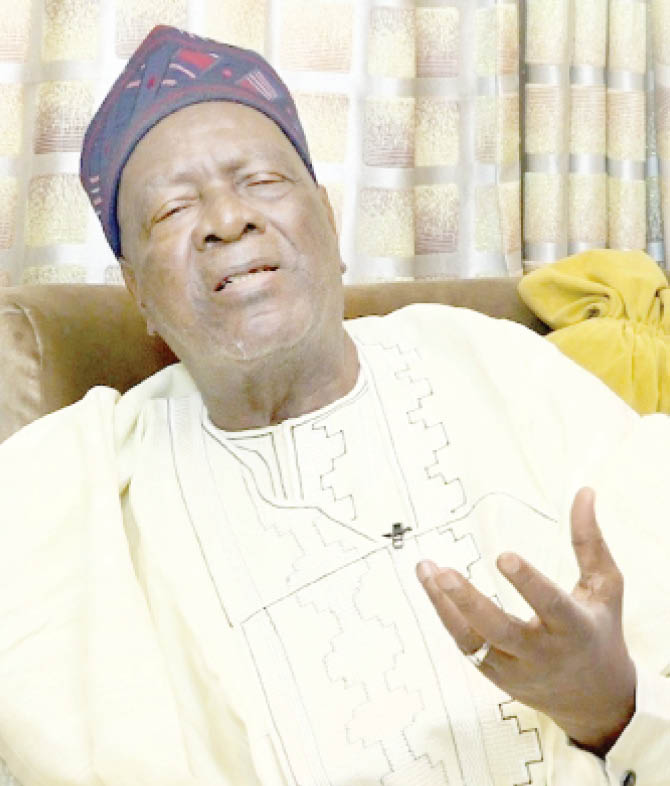
You did your PhD in Ibadan also?
I did my PhD in Ibadan when the university became University of Ibadan. I graduated from the University College of Ibadan (UCI), which was a college of the University of London and I did my PhD in a fully developed University of Ibadan and I am happy that I did it.
Why did you move to the University of Lagos for much of your teaching career?
Because I was fascinated by Lagos. My fascination was that here was a new university that was being started. It started in 1962 and I said if I were to remain at the University of Ibadan with all my teachers there, they would also be seeing me as their student, the place was becoming fossilized.
Whereas if I were to move to a new university, then there would be a lot of room for enterprise; you will be able to introduce courses, you will be able to develop curriculum, you will be able to do your research and I can always link up with Ibadan where my teachers are and some of my colleagues for whatever I may need them for and I am happy that I took that decision because, by the time I got to University of Lagos, I was able to introduce new courses. I introduced a course on the history of Lagos, I introduced a course also on Afro-Islamic civilization. I also introduced a course on Islamic political thought.
These are courses which if I had remained at University of Ibadan, it would have been a bit tougher for me to introduce them and fortunately for me, my head of department at that time was not only a scholar, he was very broadminded. He encouraged us to introduce courses that were not available in other universities, so that the university could make a name for itself for the programmes it runs.
This is how we were able to develop a course on economic history, we were able to develop programmes on international relations, courses that were not yet available in the old citadel of learning, University of Ibadan.
You became the head of the Department of History, later the Dean of the Faculty of Arts University of Lagos; was it challenging being a scholar and an administrator at the same time?
It was challenging but I must say I thank the good lord for enabling me to discharge the responsibilities; it was extremely tedious. For example, when I became the dean of arts the Lagos State government appointed me as the chairman of the Lagos State Muslim Pilgrims Welfare Board. That was the board that was in charge of organizing the lesser hajj and hajj itself for the large number of pilgrims in Lagos State.
Now combining that assignment with my responsibilities as the Dean was not a joke; it meant my working very hard, days on end; going from one meeting to another meeting, meetings that would last hours. But I thank the good lord who made it possible for me to combine the responsibilities of academics with the responsibilities of public service.
And the people I served outside the university were happy that they were interacting with a scholar and the people in the university were happy that I had a practical experience of life and so it worked out beautifully well for me.
And I look back on those years with joy and with gratitude to the good lord for the immense assistance I had for being able to carry out those responsibilities.
Are you disappointed that you didn’t rise beyond dean, to become deputy vice chancellor, even vice chancellor; as a brilliant scholar, was it something that was within your expectation?
Yes, most scholars would want to become vice chancellors because that is the top of the position and people like us who are fortunate not only to be academics but also to be someone who have some relevance in the public sector; who feel we have something to offer, but it did not come my way.
There was a time when I was offered the position of a deputy vice chancellorship in one of our universities but I didn’t want to go there as a deputy.
If I was to leave the status of a dean of arts, I would want to be a vice chancellor straight because I know that a deputy is a deputy and his powers are very much limited; he will not be able to do what he wants to do, he has to defer to his boss as the vice chancellor.
So I didn’t take that offer, maybe I should have because it would have made my becoming a VC a bit easier but I didn’t do that so I did not become a vice chancellor but then I don’t have any regrets.
So your career in the university, once you became the dean, was it from that point you retired or you stayed on as professor of history?
I stayed on. You can be a dean for one term or two terms maximally and I didn’t want to serve more than one term but then the people said I should go for a second term and that was enough for me.
When I finished my term as dean of art, I remained in the institution, I remained in the department and continued to do my research work; I continued to teach and I enjoyed it very much.
One of the things you have done which is quite unusual for an academic is that you have written books that are accessible to the public, especially biographies of prominent people.
Biographies are very interesting if you want to read about the famous people that have had tremendous impact on their society if you want to know how they did it, what were the challenges, what were the opportunities and what were the effects of their actions, so it is very fascinating.
Unfortunately, we have very few biographies of Nigerians and I thought it is high time we studied our distinguished people so that those who are coming behind them could learn about them and see the type of impact they made on their own society.
So it was an attempt to fill a gap in knowledge, to advance knowledge as it were. So in that sense, it was academic.
But then it was also a matter of public service that these are eminent men and women. People talk about them, people relate with them, and they mentor so many people; they have had tremendous influence on their society. I want to know more about them, I want to relate with them and sometimes they even approach me that I should come and write their biography or friends approach me.
So both combined academic interest and public interest and I find the characters very interesting; extremely interesting.
Can you give us a snippet on Folawiyo, what made him remarkable and then Odutola. A lot of people probably would not have heard their names…
About Folawiyo, when I wrote his book, I called it “Divine Stock Exchange. Now why did I choose that title? All of us know what stock exchanges are; you buy shares, you buy stocks, you trade with them and you may lose, or you may gain. Sometimes the stock exchange itself collapses. In Nigeria in London or in New York anywhere, stock exchanges do crash.
But I named Folawiyo ‘Divine Stock Exchange’. What inspired me was what I read in the Qur’an and what I learnt from my sheikh, I can put it simply in Yoruba language (spoke in Yoruba), ‘i.e. if you trade with your lord, you will not regret, you will not lose’.
Now Folawiyo was virtually the chief launcher of Nigeria, he was invited to various ceremonies, and various occasions as the chief launcher and he spent money generously, he built mosques everywhere, in many places, from Lagos to, I think Kaduna, everywhere, not to talk of a large number of people whom he helped.
He was a successful businessman and he was a great philanthropist. Here was a man who traded with his lord. He did not expect any return from the people he was serving and I said here is a man who was engaged in divine stock exchange that will never crash and I am happy that the man led a very good life because he was respected throughout his life and he became the Baba Addini of Lagos.
What of Odutola?
Odutola was a very virtuous man; a man who was very upright, and had high moral principles.
I talked about Ondo being an ancient city having values and having tradition, Odutola was also from Ijebu Ode, an ancient city, and the man treasured the tradition and the values of Ijebu people.
He was a successful businessman, he never cheated another person, he did not cheat and he did not allow himself to be cheated and he was in business and tackled everything businesslike; a self-made man who was able to build his name and his own business empire.
So he was a man of great respect, a man of value, a very virtuous businessman and he was a rare bird, many businessmen will cut corners, Odutola would never cut corners and he did not cheat anybody.
He was in the tyre business which he ran for a number of years. He was also in textile, he was an importer and an exporter and to my surprise when I worked on his biography, he also dealt in gold.
He went to Ilesha and he dealt in gold for some time before he left the place when it was becoming a little bit dangerous for him. He faced his business very squarely and very successfully.
He was also a philanthropist who helped quite a large number of people. He trained all his children and you may want to know that one of them became a professor – that was Prof. Mrs Clark – she was a professor at the University of Lagos.
One of the books you have written is on the history of Islam in Yorubaland. What are the nuggets from that history?
In the course of the research of my PhD, I worked on the issues of Islam in Yorubaland and one of the things I was surprised to find out was that Islam had been in Yoruba land before the jihad.
This is surprising to me, like many people. I did believe before then that it was the Sokoto Jihad that brought Islam to Yorubaland, with Ilorin the base for the spread of Islam in Yorubaland, but that is not so.
One of the things I discovered was that in fact, Islam came from across the seas to Yorubaland, especially to Lagos and Badagry, how? During the wars that took place in Yorubaland, some of the people captured and sold into slavery to Brazil and other parts of the world were Muslims before they left Nigeria.
And when they got to the foreign lands, they didn’t change their religion and when they were eventually emancipated they came back with their religion to Yorubaland, so that proves that Islam has been in Yorubaland before the jihad.
Two, before the jihad itself, in many parts even in Ilorin, in Oyo Empire in particular, there are ample evidence that Islam was present there. They had imams, they had alfas, they had congregations and they were happy in the whole place.
In fact in some writings by scholars, scholars from northern Nigeria in particular, they did infer to the presence of some scholars in Yorubaland and they linked up with them and one of them was Alimi from Ilorin and he was not alone.
In Ogbomosho and in other parts of Oyo Empire, there were also notable Muslims. They may be alfas but they were there before the jihad, they were there; I was satisfied that I was able to get this information not to talk of the linguistic evidence that we have.
Back then for example, Muslims were called “Imali” and when you begin to trace this, you will find that there was evidence that some people who have been trading outside Yoruba land, they’ve been to Mali, they’ve been to Songhai and they brought some knowledge of Islam with their wares; they did not only bring salt, they did not only bring leather works, they also brought Islam with them to various parts of the northeastern part of Oyo Empire.
So they were called “Imali”, people from Mali, so that is why it is called “Imali” at that time. So there is lots of evidence to show that Islam had been present in Yorubaland before the Sokoto Jihad.
Indeed you could say that jihad first had a negative influence on the course of Islam in Yorubaland and eventually a very positive influence. The negative effect was that, the wars caused a lot of destruction. Disasters followed the wars, towns were destroyed, and people left their homes.
They were also not so happy with what some of these warriors did to them, but when things settled down and there was peace, people began to see the beauty in Islam and a place like Ilorin became the beacon that transmitted the light of Islam to Yorubaland.
So how did Lagos, for example, become substantially a Muslim community?
It was partly because of the returnees that I mentioned, they were called returnees, that is people who were Muslim before they were exported, they were sold into slavery into the Western World and when they came back they brought their Islam back with them. One good example here is that Alh. Agusto, he became a lawyer.
Agusto sounds like a Brazilian name…
He was a Brazilian but he has become part of the Lagos family. Alh. Agusto was a lawyer and he came and he had a tremendous influence on the development of Islam in Lagos State and generally in Nigeria.
Rashid was the founder of Jama’at Islamiya which still exists today in Lagos. So the effect of the returnees in Lagos had been very tremendous, as I said, as exemplified in the case of Alh. Agusto.
Also, Lagos was a commercial centre which had a port and it attracted people from the hinterland. People who came to trade with people in the interior and when they came and they settled and later on Islam ascended.
One thing that has assisted the growth of Islam in Lagos is the patronage of those in authority, the monarchs or the obas or the kings who accepted Islam facilitated the spread of Islam.
For example, one of the kings here, Oba Sanusi, was a distinguished and refined oba who could recite the Quran. He is the father of Prince (Tajuddeen) Olusi, who is himself a highly committed Muslim leader.
So, the point I am trying to make is that some of the political authorities, the people who had power, the people who had influence supported the course of Islam or they embraced Islam themselves and that had tremendous impact on the spread of Islam in Lagos.
So you have the effect of the returnees as exemplified in the case of Alh. Agusto, the obas with a good example of Oba Sanusi and so on; then above all, there are some prominent leaders who had money and who devoted their wealth to the spread of Islam, a good case here is the case of a very good friend, a very distinguished family, Shittu Ade.
Shittu Ade was a very successful businessman and he built a mosque in the 19th century that became very famous. It was the best mosque at the time and he attracted attention, so much international attention that the Sultan of Turkey sent a representative to come and open that mosque in 1896.
And the man who came to present him at that time conferred him with the title of ‘Bey’, a Turkish title.
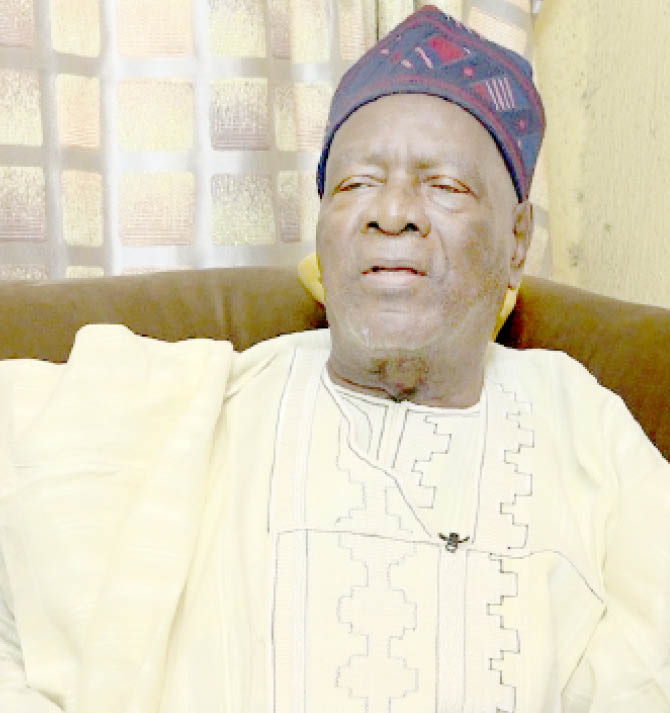
Shitta Bey. It is a Turkish title?
No, his name is Shittu and ‘Bey’ was the title that was conferred on him, so it became Shitta-Bey, and that name sticks till today. These are the things that helped the course of Islam in Lagos State.
But the coming of colonialism and Christian missionaries, did that suppress Islamic spread and influence in Lagos State?
Yes and no. Yes in the sense that the Christians of course wanted to spread their religion quite naturally, that is why they were here. They were missionaries and they tried to pay attention to converting people from the traditional religion and adherents of Islam to become Christians. That is to be expected, it is not unnatural.
Christianity too, no sorry colonialism, the British people who colonized us they were Christians, practicing Christians for that matter too, and therefore the combination of Christians and the colonial authorities, posed a great challenge to the advancement of Islam in Lagos.
And I said no for two reasons; one, some Muslims did not want to be converted to Christianity, they resisted it, but some got converted, changed their names etcetera. But some did not want to change to Christianity at all, they wanted to remain as Muslims.
The result was that they did not attend the schools that were established by the Christian missionaries, they kept away from them because they knew that if they attended them they would be converted there.
But then the colonial government was not happy that a section of the population was not imbibing the Western education and they rose to the challenge. They discussed with the imams, they discussed with the Muslim leaders, why are you not attending our school; what can we do?
Fortunately, a solution was found, the government decided to establish a school where Christianity would not be taught, the school would be run partially by government and partially by the Muslim community and they would teach Islam there, it was called Government Muslim School and it was a successful experiment in Lagos.
And the success enabled the federal government to introduce that system in other parts of the country, so a lot of people were able to keep their religion and at the same time able to imbibe Western education.
You have written about it, you said it is something that fascinates you; what is the contribution of Ansar-ud-deen to society?
The contribution of Ansar-ud-deen to society in my own opinion has been enormous, they offered Western education to the Muslims. But for Ansar-ud-deen many educated Muslims today would not have been educated.
They founded primary schools, they founded secondary schools and they made people remain in their religion and they were proud of their religion.
In my humble opinion, one example I can cite of this is a person like Alh. Femi Okunnu, his father was one of the early members of Ansar-ud-deen when it was founded. I think he was in charge of education and he himself remained a Muslim even though he was educated and he eventually became the president of the Ansar-ud-deen Society of Nigeria.
So Ansar-ud-deen has been the purveyor of Western education amongst Muslims not only in Lagos but also far beyond.
Prof., you yourself have been an Islamic activist in addition to being a scholar, when did it start, this activism, was it from the university?
When I finished, I did my PhD on the growth of Islam in Yorubaland. That was the topic. I submitted it and I was thoroughly happy. I then took a copy to meet my parents who were then based in Ondo. I cannot forget the scene that followed, I told my daddy, that here is the work I have done for my PhD. My father was very pleased and he said a lot of prayers for me.
When I showed it to my mummy, she burst into tears and rolled on the ground, mummy (spoke Yoruba). She said her father had been praying that one of his children should do what I have done, that she, my mother who was the daughter, could not do it but as the son of my mother, I have answered the prayers of my grandparents, that they wanted somebody who will work on the growth of Islam.
And what I am trying to says is that my exposure, my learning about Islam, and my working on Islam made me see the beauty of the religion, and I knew it and I tried to practice it to the best of my ability and by the time I came to the University of Lagos I was invited here and there to give lectures, to take part in seminars, to take part in discussions and things like that.
More importantly, I then met Dr (Lateef) Adegbite at the University of Lagos. He was in the faculty of law. An uncle of mine introduced the two of us and that was the beginning of my activist’s life in Muslim affairs.
But was it a hindrance to your professional career, to be a Muslim activist, did you pay a price?
I paid a price because I was operating in an environment that was largely Christian and I cannot say that I did not face challenges. I will not use the word discrimination but I did face challenges.
For example, when I was at the University of Lagos as a professor, we normally appointed the most senior professor as the dean of arts, this was the custom but when I became the most senior professor, I had challenges, I thought it would be automatic for me to become the dean of arts as the most senior professor because that was the tradition.
But then people said, no, no, no; they said how? If you appoint this man Tajudeen, a professor no doubt, a senior professor no doubt, if he became our dean of arts, the vice chancellor is a Muslim, then it means that we are being governed by Muslims, that anything they want to do a Muslim had to approve at the level of faculty, then at the level of the university. Prof. why don’t you step down?
I told them that for years, the VC had been a Christian and the dean of arts had also been a Christian, we didn’t complain that our affairs were being governed at those two levels by Christians, we complied with them, we cooperated with them and I know how much cooperation I gave to some of them.
So, if it is now Muslim-Muslim at the level of the faculty and at the level of the university, that is no big deal, it is not a religious issue, the most senior professor becomes the dean and I am the most senior professor and the government had appointed the VC because of his merits, so this is not an issue of religion.
At that time, I happened to be the chairman of the Lagos State Muslim Pilgrims Welfare Board and it was time for me to lead the delegation, to lead the Muslims to go on hajj and I went. Before I came back, the election took place and I won by a simple majority.
Now you are an elder in Lagos and indeed you are the president of the Muslim community of Lagos, what do you do in that role?
The Muslim community of Lagos State offers a platform for all Muslims in the state to be together, to pool resources together in order to address common issues; common issues in education, common issues of interest to Muslims generally. And this is following the tradition that has been established in Lagos State itself.
In fact, we live in the same world because the divine counsel is that there should be unity; don’t separate yourself, you are one, remain as one and do not be divided, that is why the Nigerian Supreme Council for Islamic Affairs emerged, that is why the World Muslim League emerged and we felt that at the state level we should also have a platform where Muslims can come together, exchange experiences, pool resources together for the common good, that’s what we do.
You are very youthful, at 84. I wonder, what do you do in retirement, what occupies your days?
How do I occupy my days? May I put it differently; my days are heavily occupied, heavily occupied. I have to do some amount of academic, some amount of research, some amount of publishing.
You still write books?
Yes, I still do. I still do my research work. I have a research assistant, I have a secretary, I have a number of projects that I do which I publish from time to time, I thank the good lord.
At the same time, I also avail some of my time to render services to the community at large, especially to the Muslim group in order to solve some of their problems. These keep me extremely busy and I am happy about it because one, I believe that I am doing something useful and two, I believe that by the time I return to my lord, I will say I’ve done my best, I will claim that I have done my best as a Muslim.
How is family life without your wife now?
People have been very supportive; I give one example to buttress my point, the very day my wife died, one of her friends approached me, and said Prof. how are you going to cope now that Alhaja is gone because she knew how close we were; how we did many things together.
Then she turned round, she saw a young man behind and she said ‘young man, can’t you stay with Prof’. That young man, she did not know, was one of my staff, a graduate of History, he has done his masters and was at that time was doing his PhD, he was one of my staff and he replied, ‘yes I will’.
From that day, for more than a year that fellow spent his entire time in this house with me which was wonderful, anything I wanted to do he supported me.
Two, the good lord himself has been very supportive. Like I said. I have been studying my Quran. Before I was the chief imam and the chairman University of Lagos Muslim community, I have been to Sudan, I have been to Lebanon doing my research and study Arabic. When I was in London I also studied the Quran with some sheikhs, I have even gone to Damascus with my children.
But then at the death of mom, I turned to my Quran and I started a fresh study of it and that helped me cope; very beautiful, in fact God has been wonderful, and people have been wonderful.
It looks to me that you don’t face any health challenges for a 84-year-old…
We thank the good lord and as I have said it is as if the good lord does nothing but care for me. Some people are surprised that I don’t use glasses, some people say they are surprised that I can do this, I can do that, and I thank the good lord for his innumerable mercies to me.
